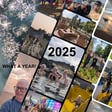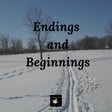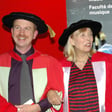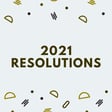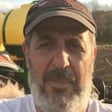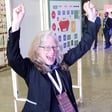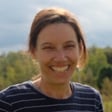Become a Creator today!Start creating today - Share your story with the world!
Start for free
00:00:00
00:00:01

Creating diversity via permaculture with Stefan Sobkowiak
Stefan Sobkowiak spent twenty years turning a traditional commercial apple farm into an extraordinary oasis of permaculture diversity. He's deeply grateful for that abundance, which defines Canada for him. The episode is brought to you by the CAUS crowdfunding campaign at https://laruchequebec.com/.
Transcript
Clayton County Police Department Hiring
00:00:00
Speaker
The Clayton County Police Department is hiring for a variety of positions and we're reaching out to you first. We believe people who live in our community are the best people to serve our community. It's local people like you who kids can look up to, who families can trust you to treat them as your own, who business owners recognize as someone with a real stake in a thriving Clayton County. This is why we want you. See our career opportunities and apply today at claytonpolice.com.
Creative Challenges During Pandemic
00:00:32
Speaker
My name is Tracey Ariel and I am an apologetically Canadian.
00:00:45
Speaker
Hey, Tracey Ariel here, and this is the second week of May 2021. And this has been the most challenging year for creative entrepreneurs. We are dealing with a global pandemic. We've got a lot of hope now because everyone's been getting their vaccines. I've got my first dose, second dose comes in July.
00:01:06
Speaker
But we've also been seeing some pretty tragic circumstances with third and fourth waves and variants that seem to be spreading much faster.
Business Taxes & Safe EMF Lawsuit
00:01:18
Speaker
So on the pandemic side, we're cautiously, we have to be cautiously optimistic because we've been going through this for more than a year now and nothing works better and making sure that you're doing exactly, when you have a life worth meaning, purpose is a lot easier when you have hope too.
00:01:36
Speaker
So I think it's important to keep hopeful and I'm certainly hoping to have just go to a restaurant with friends. My bucket list has become particularly limited these days. It's like going to a restaurant with friends is like the most exciting thing ever.
00:01:52
Speaker
Anyway, so hopefully that will happen soon. Also, this is the time when you've finished your personal taxes and you still have until June 1st to do your business taxes. If you're a creative entrepreneur, you probably have a business, although maybe both of them are tied up in one and then you're already done. Congratulations to you.
00:02:13
Speaker
I'm actually in that case for one of my businesses and I've already finished the taxes. The co-op has already finished our taxes. And so I only have two more businesses to finish their taxes for nonprofits. And one of them is Safe EMF. We have a lawsuit coming up on Monday. So this season is particularly busy for that organization too.
Copyright Law Review in Canada
00:02:34
Speaker
It's a nonprofit trying to inform people about electromagnetic fields.
00:02:42
Speaker
We also have, I also have notable nonfiction, my publishing company, which really hasn't started doing very much yet, but I still have to claim my taxes because when you have a company, that's what you do. So those are things that I'm sure you're caught up with as well.
00:02:58
Speaker
There's some really exciting stuff this week in that Danny Yenny is giving away his book about online courses away for free. If you want to create an online course for your business, I highly recommend working with Danny and getting his book, which actually reads like a novel. It's almost like a
00:03:20
Speaker
It's like the wealthy barber for online courses. It's a really fun novel, very casual, and I think it's a great read. I have a link for it so that you can get it for free for the next five days if you're listening to this right away. And that's in the show notes.
00:03:36
Speaker
And last but not least in the news section the copyright law is currently under review again and if you are a creative entrepreneur you know that in 2012 the government made some incredibly bad, actually in 1997 they made some bad decisions about changing the copyright law
Advocating for Copyright Reforms
00:03:57
Speaker
And then again in 2012, they made them even worse. And we are now in a situation where creators actually can have all of their rights taken away from them and just by signing a stupid contract. I think it's time now for the government of Canada to get really ambitious and start standing on the side of creators. I would like to encourage them to create two different kinds of copyright.
00:04:24
Speaker
The first one, which would be a duodata or author rights, and that would be the one that would be the life of the author plus 20 years. Actually, it should be plus 70 like the rest of the world. And that way the author would control it. And then they would create a copyright.
00:04:42
Speaker
which would be, I guess, doi de deux. And in that case, that would be no more than 30 years. Because if you can't take a crop product and monetize it in 30 years, then automatically that copyright should go back to the original author. And an author is an individual, somebody. Now, the problem is now, since 19, sometime in the 1980s, companies have been considered individuals under the law.
00:05:11
Speaker
Well copyright should just change that around and that you need to be a living human being to be a creator and so that that way when you have a film that is made up by a collective of creators or when you have a product that is made up by a company or a collective of companies it's still the individuals within that company that are named
00:05:31
Speaker
and that hold the long-term copyright. Now if they are employees, then they can actually, because the company might not exist after 30 years, so they can just sign another contract, which is an employment contract. So if they're still an employee of that company after 30 years, then that particular product still gets to be promoted by the
Interview with Stefan Subkowiak
00:05:57
Speaker
company.
00:05:57
Speaker
This would be a good way of turning around some of the multinational corporate negative ramifications in multi-colon natural corporations that we've had for companies and for individuals and take away and put the power back in the hands of living, breathing individuals. So that's what I would like to encourage the government of Canada to do this week.
00:06:23
Speaker
And if you agree with me, then you can write to your MP or send a note to the industry minister and or Stephen Guilleveau, the heritage minister, and see if you can actually make this happen because it's a really important time to make your stand known when it comes to copyright.
00:06:43
Speaker
And that's it for today. My interview this week is with the wonderful Stefan Subkawiak. Stefan is the owner of Permaculture Orchard here in Quebec, and he's been running that Permaculture Orchard for decades now, and it's an extraordinary place. We go apple picking. We're always members of the farm every year.
00:07:07
Speaker
I bet he does a lot of really cool training and he has a fabulous YouTube channel that's getting a lot of attention now, too. So I'll put links to those in the show notes as well, but enjoy my interview with Stefan now.
Transforming to Permaculture
00:07:20
Speaker
Hey, Stefan. Fabulous to see you again. Long time no see. This virus has made things a little bit difficult this year in terms of events and stuff, eh? Yes, it has. Yes, it has. Even though we live in the same neighborhood. I haven't even seen you walk in the dog lately.
00:07:36
Speaker
I walk in the same area as I go along the bike path. The dog loves to do the search for voles.
00:07:45
Speaker
Yeah, well, there certainly are a lot of voles in the neighborhood. That's for sure. You should take them down to the greenhouse every now and then. We could use a bull hunter nearby. I do. I go down that way too, but I just don't go inside the gates. Ah, OK. Anyway, well, anyway, so I guess we should start by talking about what you've been doing this year with the pandemic. How has the farm been going on? I mean, you have, are you still Quebec's only permaculture farm?
00:08:14
Speaker
I doubt it. I doubt it very much. I mean, there's a lot of people have been interested. Yeah. A lot of people have been interested for years and it's just maybe I'm kind of the most advanced one, but there is a lot of others. There's some nice examples. I don't know if anybody has bigger. There's certainly people who are planning or have started or are starting, but that's, it's all exactly what's the most important to do.
00:08:44
Speaker
So can you talk a little bit about this project of yours? I mean, you started it, when you started it, it wasn't as well known as it is now. Permaculture itself wasn't even as well known in Canada. Yeah, I guess it depends when you jumped into the bandwagon, if you like, because I started, I remember reading about it in 1990.
00:09:06
Speaker
at the Ecological Agriculture Project, the library at McGill. And I went, this is it, this is, I wanna do this, this is what I wanna do, this is great. That was like, you know, it's one of these things that when you discover it or you take a course and you go, oh my God, we're gonna change the world now.
00:09:26
Speaker
And so my reaction to that was 1990. And so by the time, as you say, the orchard, you know, there was a it's a process. And I understand when people say, yeah, I'm thinking about doing it, you know, it's been five years and it's okay. I was thinking about it for a long time. Yeah. Actually, 90 I discovered permaculture, we bought the farm in 93.
00:09:51
Speaker
But that was just the whole process of going through and taking a 4000 tree organic apple orchard, which was a monoculture and doing that. And to finally realize that this doesn't it. I mean, it works, but it doesn't work the way I hope it worked. It doesn't work as an ecosystem. So, yeah, 2006, we tore out most of it and 2007 started to replant.
Orchard's Unique Design
00:10:18
Speaker
Right.
00:10:20
Speaker
And even then, when I plant it, it's like, look, you know, I am so late to the game. There are there's just so many people who have been doing this. It's not that I wanted to be first, I just figured, you know what, I just don't know who else, but there's got to be hundreds or thousands of people doing this.
00:10:42
Speaker
And it ended up, no, it wasn't. So that's just how it works. No, because it's hard to do. It takes time. And I mean, any kind of agriculture is hard as it is. Any kind of project, period. Yeah. Which project? You want to start a podcast. You say, OK, I want to start a podcast. And you just Google how to start a podcast. OK, I'm starting today.
00:11:04
Speaker
That's not likely. I mean, you just don't start on a dime. You can have the desire, but it still takes some effort. It takes some research. It takes some getting into it. Actually, I didn't check. Are you recording? I am. OK. Yeah, so anyway, finally got to it and finally got it done. At least a part of it done. You know, it's not all done, but it's interesting enough part of it is done.
00:11:34
Speaker
Yeah, can you talk a little bit about your, basically, I love your whole grocery aisle concept.
00:11:42
Speaker
Actually, it was kind of an offshoot from having the monoculture apple orchard. Because what I saw then, that made a lot of sense. An orchard isn't a bad idea. People think, well, it's straight rows. It doesn't have to be straight rows. But it was straight rows because you start off on a rectangular backdrop. Most lots are not
00:12:08
Speaker
some odd shapes there, rectangles, squares, whatever. And so it followed that pattern and it became a linear thing. And the other thing was all the trees in a row were planted as the same tree, which now I would say that's not a good thing, but what is good about it
00:12:27
Speaker
was that because they're all the same, they're all planted to harvest on the same date, which made a lot of sense. And so the grocery store was just taking that idea.
00:12:40
Speaker
and adapting it to many different species, so trees, shrubs, and perennials, and so on. And the grocery store is just that we look to harvest in a 10-day window. It doesn't always work that exactly, because, yeah, there's a lot of work that needs to be done to know that that's the exact window. But that's the idea that you pick in a couple of rows, and that's what's in. And the idea of grocery store is,
00:13:09
Speaker
you're walking and you're not going to just take apples if apples are ready because in the same row you might have plums and pears. So you'll take apples but oh yeah the pears are ready too. Oh and these plums. So you go down the grocery store aisle and you get a whole cart full that's the idea.
Success Story in Permaculture
00:13:28
Speaker
Right.
00:13:28
Speaker
You know you've you've gotten a few cart fulls so you know how it's easy to get wrapped up in in getting it going. Yeah yeah and I have a I've actually I find I think with this podcast in addition to the headshot you send me I'm gonna put one of the Apple shots that we have I have quite a few fun shots from going because I've been a member of miracle farms for many years now and
00:13:48
Speaker
We, you know, the kids grew up there, actually, I have pictures of the kids actually with the ducks. You know, you've had ducks, you've had sheep, you've had, you know, those sorts of things, which leads me to the question, what's your favourite success story about operating your permaculture orchard?
00:14:07
Speaker
Yeah, well, that's exactly what you said about being a member. So my biggest success when I really thought, wow, this is this is really come of age, was one of our members who had like a toddler, just the toddler for little girl who was with them coming year after year. And so I saw the first year, I mean, she couldn't barely walk yet. And they were bringing her through the rows and so on. And year after year, you know, the little girl becomes a little girl.
00:14:37
Speaker
And finally, after about, what, five, six years or so when she was in first grade, the school had, you know, we have all these go out and do apple picking, right? Because it's just an orchard is just apples. So that's the whole idea. And so the little girl went and she came back that day and the mother asks her, so how was your day? And the little girl looks at her mother, she says, Mommy,
00:15:06
Speaker
It was weird. There was just apples.
00:15:13
Speaker
And I thought, oh, wow, that is the greatest accomplishment I can get, is that little girl's idea of an orchard was absolutely what I'm aiming to do, was to make a monoculture seem weird. Like, this doesn't make sense. This is not logical, it's weird. And that girl's reaction was exactly what I'm aiming for, that, you know, yeah, monoculture is weird, it doesn't make sense.
00:15:42
Speaker
And so that was to me. Wow. That was, that was a lovely day that time. I thought of that when I went, wow, that is fantastic. Yeah. And it's interesting because she would have gone probably in the fall, right? And so things that are, that are growing in the fall. I mean, what do you have growing at the farm around that time in a row of apples?
00:16:03
Speaker
just apples yeah so it's uh but you have flowers and you have you know when you go to miracle farms at that time of the year you know you might have some some black-eyed susans and you have uh the you know you tend to have a lot of butterflies around and you know uh swallows and all sorts of things that like whatever you go we see tons of different kinds of things
00:16:28
Speaker
But on the other hand, what would you say the biggest failure has been? Because you've been doing it now since 1993. I mind you, from 1993 to 2006, you were building the traditional orchard. The real permaculture version has been since 2006, really. Although before that, you were still running an orchard, which is not easy to do.
Challenges in Permaculture Transition
00:16:53
Speaker
Yeah, but, you know,
00:16:57
Speaker
Yeah, it wasn't like I start, you know, thinking of it, I always say now it would have been far easier to have started with a scratch, you know, a blank slate. Right. If we had bought a place and it was just a field that would have been way easier. But I wanted the idea of fruit trees because I thought, well, you know, I'll just mix it up and yeah, it wasn't that easy. Plus, you know, we had sheep. And when I had to say we had sheep, even before you came, we had 100 sheep at one point. Yeah. 100 sheep.
00:17:28
Speaker
There's nothing that's growing underneath other than grass and clover that that will survive because the sheep will and we had we had quite a bit of shrubs starting just naturalizing growing and within two years it was gone like you could kick the shrubs over everything was so sheep are great to control vegetation that you don't want.
00:17:50
Speaker
especially shrubby stuff, but it's not a good way to replant and have sheep in there. So there is a sequencing of when you would put things, but definitely the most challenging and the biggest failure I would just say is that I took so long to start. Like I can remember in 2000, I was ready to start. Like I wanted to start and it didn't happen until seven years later.
00:18:18
Speaker
Yeah, I mean, I knew I needed to change the orchard. I knew I had to, but that's why I say it would be easier to have started from scratch because, scratch, then you just plant. But because I had an orchard, I had to now pull out this orchard and then replant. So it was a big added step.
Advice for New Permaculture Enthusiasts
00:18:40
Speaker
Right, right. Anyway, to me, that failure, there is no failure. There's feedback.
00:18:46
Speaker
I can now tell people that yeah you know what start on an empty space it's much easier just from experience I you know I did I had a series this fall on my youtube channel on the biggest mistakes and when I started recording I went wow there's a lot of mistakes yeah more than one video more than two videos so I ended up with four videos on different mistakes because and these were the biggest ones it wasn't
00:19:12
Speaker
You know, it wasn't all the mistakes because I couldn't even remember them all. Usually I make them twice. So that's the other thing. And when I do it the third time, I go, okay, yeah, that was wrong because I did learn it.
00:19:24
Speaker
I forgot it. I did it again. I forgot it. And if you've been at it for 30 years, I find a lot of mistakes have about a 10 year memory span. And that's one of the reasons I started the YouTube right was now I'm documenting it. People are watching and they can remind me that didn't you say that didn't work? And if I say something and I go, you know, I'm thinking of doing that and somebody will remember that. Didn't you say, you know, that that didn't work? Oh,
00:19:53
Speaker
What are the four mistakes on those? Oh, gosh, I have one just on nursery mistakes because there was a lot of mistakes with the nursery. One on the design, so how we laid it out and so on, mistakes involved in there. And then there were two others.
00:20:12
Speaker
You know, the only people who don't make mistakes are people who don't do anything. That's right. That's the only, that's why to me, there is no mistake. A mistake means you're just, you're doing something and you adjust and that's all there is to it. Like, well, I think the school system, sorry. Sometimes mistakes are just because of timing, right? Sometimes something that didn't work before might work now, right?
00:20:36
Speaker
Yeah, yeah, like, for example, somebody asked me today, would pause work? And I said, well,
00:20:44
Speaker
If you're in an open area and you're planting an orchard, I wouldn't plant pawpaws unless you're really farther south. Just because pawpaws don't tolerate that open situation. They need some shade and they need the shelter. And Asian pears we found was the same. They never worked in the beginning, but they work much better now that they have protection from the other trees.
00:21:10
Speaker
And so what do you have tips for people who are starting other than start in a blank slate? Just start. Honestly, that's because I know that that's why I say start with two trios. What's a trio? A trio is three trees. So you have two fruit trees and a nitrogen fixing tree or shrub. That's a trio. And if you double that, so you have two sets.
00:21:37
Speaker
And there is a huge advantage to that because it's like, come on, six trees, that's nothing. I want to put in an orchard, yes. How many trees? Maybe 200. Well, plant six this weekend. Well, now it's a little late in our climate, but if it's the right time of year, just plant six trees this weekend as close to when you get excited because unless you do something,
00:22:04
Speaker
I always find that an idea has with it a dose of energy. And you learn something, like I remember when you went through the permaculture course, man, that last day when you're finishing, I mean, you have such a huge ball of energy to want to do something.
00:22:25
Speaker
And with time, that ball kind of, you know, deflates. And then when you go five years later, I want to do something. Well, now, you know, your ball of energy is kind of deflated. And now it's like, oh, yeah.
00:22:42
Speaker
So that's why really, and if you have two trios, you've got the hardest part done. Right? Because I remember a high school teacher used to say, you know, starting is 50% of the job done. And now with, you know, 40 years, 50 years of
00:22:59
Speaker
seeing that in action it's absolutely true because if you started it when you could have started it because there is a time you could start it's not that big of a job you could start if you'd started then by now which could is often two three five years later well you're already you'd be eating from the trees yeah you know it's like yeah those trees they're producing like crazy already exactly so
00:23:28
Speaker
that will be a motivator. Cause a lot of times in the beginning, it's not discouraging, but okay, the tree's there. Okay. It's growing, but nothing's happening. There's no flowers. There's no fruit in the tree yet. You know, you're just waiting and waiting and waiting till something happens. So just start very small. And that's a permaculture principle, you know, slow and small is the way to start.
Reflections on Canadian Identity
00:23:57
Speaker
Well, and actually one of the permaculture principles too is just to look around first and actually watch what's happening and come up with your design based on what you actually see. And that's an interesting concept. I remember when we moved into our house, people kept telling us that, but there are certain things you want to do anyway.
00:24:17
Speaker
And I credit that permaculture course actually for the work that we've done on the greenhouse, because that was, you know, it was much easier to get moving when you already knew a bunch of people who were interested. So, and they weren't there, you know, basically, as soon as you start getting an idea in your head, I mean, part of me that the time when we met, that was me building my Canadian life, you know, where you get to be outside in the summer and inside writing in the winter.
00:24:47
Speaker
You gotta be outside in the winter, otherwise at six months of the year, you're inside. I've always cross-country skied, so it's not like I don't go outside in the winter, but I just wanted a life that was designed to be more like the traditional farming type of life.
00:25:03
Speaker
you you're outside you're doing you're growing food you're being part of food and then you're and then you're inside being creative and you you've got some real creativity in the last few years you've been doing some fabulous videos you've been doing some are you still doing your book is it's coming along yeah actually it's had a publishers in france now because i've got the french the french version they said it's about a year uh and
00:25:32
Speaker
I got around not having to write, which was my deal with them. I said, look, I'm interested. So what I gave them was I gave them the English manuscript. I gave them, there was some interviews I did that I said, look, the stuff, the information's there. And so she said, look, we'll do it as a,
00:25:59
Speaker
translated from the book part translated question and answer series part and taking parts from videos and the film. So I said you know what let's do that and next summer she'll have a photographer come by through the season and take like you know one day in four times in the year for one day just to document what they're trying to show and I said that's
00:26:25
Speaker
That's because you know me. If it comes down to me writing, God, it's I don't know me in writing. I kind of remember a high school teacher who when I thought I had written the best piece I ever wrote, like, you know, I sweat it over that thing to write what I thought was the best writing I ever did.
00:26:47
Speaker
And she totally said, like, this is a piece of crap. Oh, my gosh. I was I was so deflated. I thought.
00:26:56
Speaker
what this if this is the best and this is crap then i give up on writing like it's useless because i just that's a future conversation because that's really there's no way that that should be the final thought of writing that's like that's not okay because everybody has a skill like doesn't matter what what you write you pro you have there's a skill there the worst writer i've ever read
00:27:21
Speaker
is also the best person in terms of dialogue because the reason that she wasn't a good writer is that she wrote so accurately what was happening that it was hard to pull the story from it. So there's always something you could start with that she could have told you what you were good at.
00:27:39
Speaker
And so I know now my style is more narration. So for me to write, I wouldn't write now. I would dictate it and transcribe and have somebody like you clean it up. That would be the easiest way because I can't, you know, I'm not organized. Like don't ask me to organize all my thoughts.
00:28:01
Speaker
you know my son does the same when we try to do a video he says pops you gotta be you gotta have it organized organizing when you have ideas dancing in your head like like a band you know going off all the time it's not obvious yeah you had one more question i did because this podcast is called unapologetically canadian so i wanted to know do you consider yourself canadian and what does that mean to you
00:28:31
Speaker
Absolutely. Yeah, I'm very pleased to be Canadian actually. I'm first generation Canadian. Both my parents came from Poland. And I think that's very, well, you could literally say who isn't from somewhere at some point. Like honestly, even the Native Americans or Native Canadians, the Aborigines,
00:28:57
Speaker
uh the aboriginal people they they weren't started here like they've been here the longest but they themselves came from somewhere like the origin
Permaculture Journey & Greenhouse Project
00:29:08
Speaker
of man was not on north american continent
00:29:11
Speaker
And so it's just a question of, look, everybody's comes from somebody, it's a melting pot, as is the US, the same thing. And so we come from somewhere and that's actually, I find it's a big benefit because like my cultural background,
00:29:33
Speaker
has shaped the way I think you know the reason for the farm partly is like some of my memories that are quite vivid is I remember our our uh cold cellar you know man in the fall time it was packed there was enough food we always had like you could have had anything happen we had six months of food all the time
00:29:59
Speaker
This is because my, pardon me. Where was this? In, in the lower Laurentians. Oh, lower Laurentians. That's where they came. Tell me a little bit about your history in terms of you said you were. Well, my parents both came right after the war. Okay. They both came on contracts that time. The government was always looking for workers. They just needed people to work. So my father worked on the railroad for a year and cutting forest. And my mother worked in a, um,
00:30:28
Speaker
in garments, sewing and so on. So they both didn't know how to do that, but it was just they needed people who could work.
00:30:38
Speaker
And so they did that and they ended up both coming back to Montreal. They didn't know each other. They met in Montreal and they both came from farming backgrounds in Poland. So they thought, well, we really don't want to live in the city. So they found a place that was at the time kind of really in the boonies, you know.
00:30:59
Speaker
But now it's amazing. No, not even that far. It was east of St. Jerome. Oh my gosh. I'm almost part of the city now. Exactly. Now it's like I look, I've been by there a few times and it's like, this is a suburb now. You know, people are, but at the time my sister got lost at one point in the forest because it was such a huge forest.
00:31:25
Speaker
that you could get lost. And so it was really, and I can remember one day sitting there, my father said, you know, one day the city will be reaching up to here. And I was like, that's impossible. Like, that can't be. I couldn't imagine that. And in 60 years, just about, it really has. It's amazing how sprawl happens anyway.
00:31:54
Speaker
To be Canadian, yeah, that's really what it means to me. Sorry? What you said, what does it mean to you? Yeah, it means, you know, we come from all different backgrounds and I think that diversity is very important. Excuse me.
00:32:14
Speaker
Yeah, we're not. It's the diversity that makes that, you know, Canadians think the way we do. We know we're all super privileged, like, gosh. And if we don't, we need to be reminded that, look, this is an incredibly
00:32:30
Speaker
you know, such an incredible country to live in. I was just answering somebody yesterday about, I said, yeah, but they were talking about the tax situation in the US. And I said, yeah, but I said, you didn't factor in health insurance, which I said, you know, in the US when you say health insurance, well, insurance means it just ensures that it's a hidden tax.
00:32:57
Speaker
Because it's it's such a big cost and they say yeah you know our taxes are lower. I said they only appear lower but if you factor in what your health insurance costs and and the whole thing about I mean Canada is not about it's it's only the US that is not
00:33:17
Speaker
that still runs in a private system for profit, for health. That's like, that doesn't make sense. Why does health care become a for-profit situation? Like their health care costs per person are more than double what all the G20 are. So anyway, that's one of the aspects, but we're definitely unapologetically Canadian and proud of it. That's for sure. We're so fortunate.
00:33:47
Speaker
Yeah, it's funny then you talk about diversity because your whole life is about diversity, diversity of crops, diversity of people, diversity in lifestyle. I mean, it's really, it's been a privilege to be working with you for so many years. It's really, I really appreciate it. Was there anything that I didn't, that we didn't talk about that you really wanted to mention?
00:34:12
Speaker
Uh, no, I don't want to open another can of worms because there's so many things we could go into. No, that's kind of curious on your, you know, I don't know what your, what would that be? What's your, uh, your roadmap, how you, like you got into permaculture living in the city and, you know, how did that come about? Because you also got into this and went down a rabbit hole that
00:34:43
Speaker
Well, like I said, the first part of it was more of an ecological idea. I was getting involved locally on ecological projects and trying to do a garden at the church and all sorts of things, basically trying to expand ecology and diversity around me. And I really, like you, I have a value of making sure that there is diversity around me and that includes diversity of plants, because I think we don't have enough greenery in the city and we don't have enough
00:35:12
Speaker
food for sure. And it's just important. So permaculture sort of got me a chance to do both of those things, which is create a life which is Canadian in that the outdoors is not just part of my recreational activities, but it's also part of my work activities. I wanted to combine them. And then that sort of led to the greenhouse project where we took this old
00:35:41
Speaker
Because I also believe that heritage buildings should be kind of continually used. And so it was being used for green for blue boxes at the time. And now it's full of plants and we're taking our aquaponics system and hopefully moving it outdoors so that we can put a community garden inside too. So people who actually members who want to have indoor space can actually have indoor space.
Diversity in Canadian Experiences
00:36:04
Speaker
So.
00:36:05
Speaker
And then that's part of what this podcast is about too. Like what does it mean to be Canadian? Each one of us has our own definition of that. And I think that that actually connects us. It's like the live local and then be global. Unless you actually appreciate where you are and what you're doing in your wherever you live, it's really hard to be really active in the international world. I know a lot more
00:36:35
Speaker
about the international treaties because I'm a writer and I care about copyright and all these things that actually go to international meetings. If you are a permaculture person, you know that there is a world ecology that has to be protected. So everything, if you can be really local, then you don't have a choice but to have a bigger vision. So that's sort of why. That's my aim. So that's why I talk to everybody about, that's why I want to explore Canadian identity.
00:37:06
Speaker
is what, because like we've, you know, I didn't know how this interview was going to go, even though I've known you for years, but it's just interesting that it turned into, you know, this huge value of diversity. You know, we've never talked about why you're Canadian. We've never even talked about the fact that you, whether you, I didn't know, because we live in Quebec, so I don't always get yes as an answer to that question. And sometimes, sometimes when people are not Canadian, they,
00:37:34
Speaker
or they don't consider themselves Canadian, they have fascinating answers too. Yeah and it doesn't mean because you're born, yes you're born here you're Canadian.
00:37:46
Speaker
uh but like my parents weren't born here but boy they were definitely you know very happy um to be Canadian they realized having gone through the war they realized wow this is such a privileged you know so what we have here is incredible incredible and I do feel sad when
00:38:08
Speaker
people criticize a lot. It's like, just travel a little bit, you know, just go outside, you know, forget your bearings in whatever field you're in, and see that we, we have a lot going for us here. I mean, when I go to Europe, this year is the first year in seven years, I haven't gone to Europe for a tour. And when I speak in Europe,
00:38:36
Speaker
People don't grasp how big Canada is. They just don't. I usually say a joke, because if we're Canadian, we know what a forest is. And so I say, yeah, but you don't have any forests in Europe. Everybody gets like, what? I said, no, you don't have forests. I say, where could you go that you could walk for a week
00:39:03
Speaker
and not see another person and really know that you're totally lost.
00:39:10
Speaker
Oh, well, they're all thinking there might be a place. Yeah, I said, come on. I said, I could go an hour. You'd say an hour north of us. And there is a good chance that, yeah, I might hit a logging road, but I don't know which way to go. And look, that's forest. If I go two hours north, then, yeah, I could travel for two months and be totally lost.
00:39:39
Speaker
So you talk about the Trans-Canada Highway, I mean it's interesting because there are sections of the highway that weren't built for about 30 years and after the actual highway was officially opened because it took them that long to engineer the potential of getting across various crevices and you know through various
00:40:02
Speaker
forests, you know. And they give you lots of warning, you better get gas because there's no gas station for 150 miles. Yeah, some of the across because I've done a lot of hiking across between Manitoba and Ontario. And man, the highway in that area is desolate. It's like rocks, trees, and that's it.
00:40:31
Speaker
I went through it in a snowstorm when I was driving to Manitoba. I worked in Manitoba twice and it was the biggest snowstorm of the year. It was middle of April.
00:40:47
Speaker
it was the biggest snow like it was tulips were blooming in Montreal and I headed that way and as I was driving it's like hmm you hit North Bay and you go wow the rivers are really swollen it's flood stage so there's lots of snow melting and then you get the capis casing and there was three feet of snow on the ground I said it's middle of April like when does snow leave here
00:41:12
Speaker
And that's when I hit the start of the snow storm. And as I was driving through, they kept announcing, TransCanada has closed that whatever. And I'm thinking, I just went through there 20 minutes ago. And so I drove through the snow storm for 10 hours. When I stopped, I was basically locked like this. Like I remember getting out and sitting in a truck stop and I sat down
00:41:41
Speaker
And I was kind of like, I couldn't even put my hands down to eat. Because it's so mesmerizing, the snow going over the hood for 10 hours.
00:41:53
Speaker
So yeah, I fell asleep. Yeah, because I did some stupid things. I passed a snowplow at one point. I thought, wow, that was dumb. That was really dumb, you know? It's funny how you always know these things are stupid after you do them. Well, you're in a trance. You're just like mesmerized for following something for an hour that you don't think, okay, I think this is a good chance. But you know, you can't see anything past the snowplow.
00:42:23
Speaker
Yeah. And so I thought, yeah, that was dumb. If there was a truck coming, I was toast, you know, just just anyway, hopefully. Anyway, I'm just glad. Thank you very much for your time. I love I love
Closing Message from Co-op Coase
00:42:36
Speaker
speaking with you. It's always great.
00:42:40
Speaker
Unapologetically Canadian this week is brought to you by Co-op Coase. We create communities to help people live locally. If you want to buy local, if you want to cook, or if you want to grow your own food, you want to partner with Co-op Coase and our crowdfunding campaign is on right now.
00:43:13
Speaker
Experience the Jared difference. The best prices on an amazing selection. Select your diamond gift today from hundreds of styles they're sure to love. Jared. Love brilliantly.


